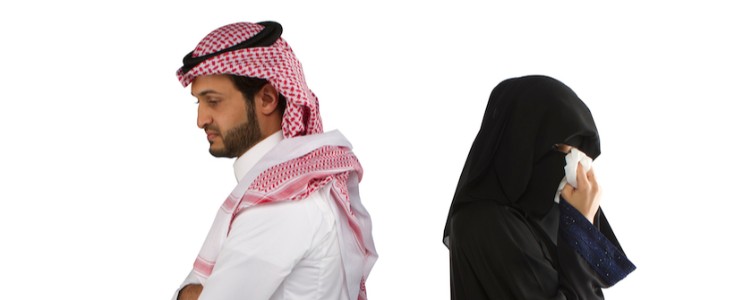
Understanding Attachment Styles and Nurturing Healthy Adult Relationships

Understanding Attachment Styles and Nurturing Healthy Adult Relationships
Attachment styles play a pivotal role in shaping the dynamics of our relationships, influencing how we connect and relate to others. Developed in early childhood, these patterns of relating to caregivers can significantly impact our adult relationships. In this article, we'll explore different attachment styles, their origins, and their effects on adult relationships, and provide insights on fostering healthy connections.
Types of Attachment Styles:
Secure Attachment:
People with secure attachment styles feel comfortable in close relationships. They trust their partners and believe they are worthy of love and support. They can express their needs and emotions openly and honestly, and they are comfortable with both independence and intimacy.
- Characterized by a healthy balance of intimacy and independence.
- Developed in an environment where caregivers consistently met emotional needs.
- Leads to individuals feeling secure in relationships, and comfortable with closeness and autonomy.
Anxious-Preoccupied Attachment:
People with anxious attachment styles are often worried about being abandoned or rejected by their partners. They may be overly clingy or demanding, and they may have difficulty trusting others. They may also have low self-esteem and may feel insecure about their relationships.
- Arises from inconsistent caregiving, causing heightened anxiety about the availability of love and support.
- Individuals may seek constant reassurance, fear abandonment, and often feel insecure in relationships.
Dismissive-Avoidant Attachment:
People with avoidant attachment styles are uncomfortable with intimacy and closeness. They may prefer to be alone or in casual relationships, and they may avoid emotional commitment. They may also have difficulty expressing their needs and emotions.
- Developed in response to caregivers who were emotionally unavailable or dismissive.
- Individuals with this style may struggle with emotional intimacy, preferring independence and distancing themselves from emotional connections.
Disorganised Attachment:
People with disorganized attachment styles have mixed attachment behaviours. They may sometimes crave intimacy and closeness, but at other times they may push their partners away. They may also have difficulty regulating their emotions.
- Stemming from inconsistent caregiving, individuals may desire closeness but fear vulnerability.
- Leads to a paradoxical blend of a strong desire for connection and a fear of being hurt or rejected.
Causes of Attachment Styles:
- Early Caregiver Relationships: Primary caregivers' responsiveness and emotional availability during childhood shape attachment styles.
- Environmental Factors: External influences, such as family dynamics and socio-economic conditions, can contribute to developing attachment styles.
Effects on Adult Relationships:
- Secure Attachment: Positive impact, fostering stable and satisfying relationships.
- Anxious-Preoccupied Attachment: Tendency to be clingy or overly dependent, leading to relationship strain.
- Dismissive-Avoidant Attachment: Difficulty forming deep emotional connections, a preference for independence, and fear of intimacy.
- Fearful-Avoidant Attachment: Struggle with trust, potentially leading to a cycle of pushing others away and yearning for connection.
Nurturing Healthy Adult Relationships:
- Self-awareness: Recognize and understand your attachment style through introspection and reflection.
- Effective Communication: Openly express your needs and fears to your partner, fostering understanding and empathy.
- Therapeutic Support: Seek professional help if attachment issues significantly impact your relationships.
- Developing Secure Attachment: Engage in activities that build self-esteem and promote emotional well-being.
- Mindfulness and Emotional Regulation: Cultivate emotional intelligence to manage anxiety and fears that may arise in relationships.
- Work on Personal Growth: Continuously strive for self-improvement and emotional regulation.
- Couples Therapy: Explore attachment dynamics together in therapy to enhance mutual understanding.
- Build Trust: Focus on building trust through consistent actions and open communication.
Understanding and addressing attachment styles are crucial for fostering healthy adult relationships. By acknowledging our patterns, actively working on personal growth, and engaging in open communication, we can break free from the limitations of our attachment styles and build fulfilling connections with others.
Articles
Build your awareness and get inspired with our researched articles on how you can strengthen your well-being
Popular Topics
An OTP has been sent to the email address
provided.
Please check your Inbox and Spam folders.

What Would You Like to Speak with a Specialist About?
Mental Fitness Journey starts Now!
Chearful Connects you with Top-tier Qualified Wellness specialists for the Price of a cup of Coffee!

Next Steps
- A Client Team member will reach out to you to schedule a session with the most suitable specialist.
- You will receive an email with a 10% Discount Code* for your 1st session.
- We invite you to Explore the Platform & Sign Up today! *Upto a maximum of $10 discount on a session purchased




 2482 Read
2482 Read


















